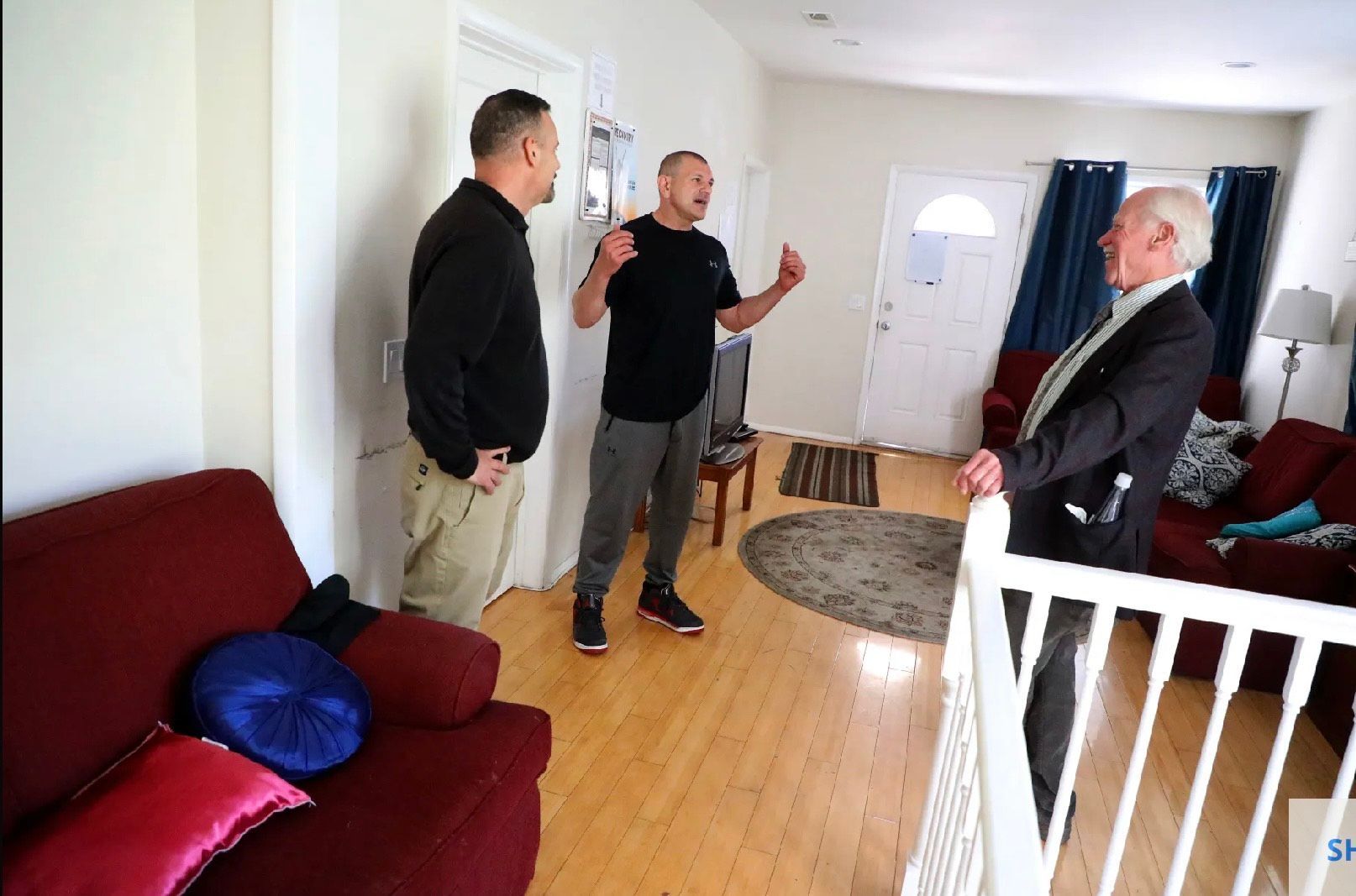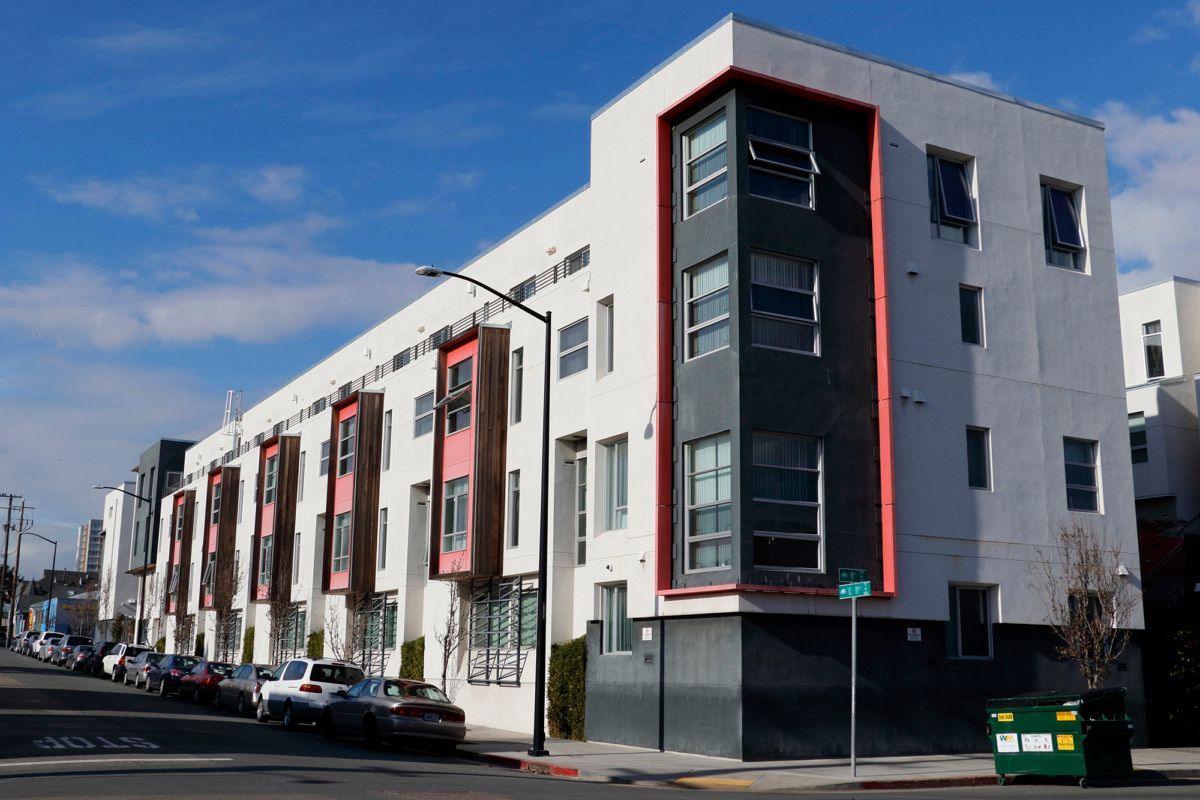The Need for Transitional Housing for Justice-Impacted Individuals in Oakland, CA
Housing Solution for ReEntry

In Oakland, California, the intersection of homelessness, criminal justice involvement, and the need for stable housing presents a unique challenge. Justice-impacted individuals—those who have been incarcerated or involved in the criminal justice system—face significant barriers in reentering society, not the least of which is the lack of access to safe, affordable housing. For many, the road to successful reintegration is hindered by a critical shortage of transitional housing options designed specifically for their needs. This article explores why transitional housing is vital for justice-impacted individuals in Oakland, the challenges they face, and the programs working to provide solutions.
The Challenges Faced by Justice-Impacted Individuals
When individuals are released from incarceration, they often face a complex web of obstacles that make reintegration into society difficult, if not impossible. These obstacles include:
1. Housing Instability
A significant barrier for justice-impacted individuals is finding stable housing. Whether on probation or parole, many are released without a place to stay, and the stigma associated with a criminal record makes it even more difficult to secure permanent housing. In Oakland, like in much of the Bay Area, the high cost of living and limited affordable housing options only exacerbate this problem. Without stable housing, formerly incarcerated individuals are at a heightened risk of returning to homelessness or reoffending.
2. Employment Barriers
A criminal record can severely limit job opportunities. Despite efforts to reduce discrimination in hiring, many employers are reluctant to hire individuals with a history of incarceration. Without steady employment, individuals have difficulty affording housing and meeting other basic needs, which can hinder their ability to successfully reintegrate into society.
3. Social Isolation and Stigma
Returning to society after incarceration is often emotionally and socially challenging. Many individuals lack strong family or social support networks. Furthermore, the stigma of a criminal record can make it difficult to rebuild relationships and reintegrate into the community, further contributing to feelings of isolation and hopelessness.
4. Mental Health and Substance Abuse Issues
Many individuals who are justice-impacted also face mental health challenges, substance use disorders, or both. Without access to proper care and treatment, these conditions can undermine efforts to rebuild their lives and remain free from reoffending. Without a safe and stable place to live, these issues are often exacerbated, creating a vicious cycle that is difficult to break.
5. Legal and Probationary Requirements
Justice-impacted individuals are often subject to ongoing legal or probationary requirements upon release, including mandatory check-ins, restrictions on movement, or the need for regular drug testing. These requirements can complicate their ability to find suitable housing, as many landlords and property managers are unwilling to rent to individuals with such legal obligations.
The Importance of Transitional Housing
Transitional housing plays a critical role in breaking the cycle of recidivism and homelessness for justice-impacted individuals. These housing programs are designed to offer a temporary, supportive living environment for people transitioning from incarceration back into society. Transitional housing provides much-needed stability, along with services and resources that can help individuals reintegrate successfully.
Key benefits of transitional housing for justice-impacted individuals include:
1. Safe, Stable Living Environment
The first priority for justice-impacted individuals upon release is often simply finding a place to stay. Transitional housing offers a safe, stable living environment where individuals can rebuild their lives without the constant stress of worrying about where they will sleep.
2. Comprehensive Support Services
Transitional housing programs often include a range of support services designed to address the unique needs of justice-impacted individuals. These services can include case management, job training, mental health counseling, substance abuse treatment, and legal assistance. By providing these resources, transitional housing programs help individuals develop the skills and stability they need to succeed in the long term.
3. Connection to Employment Opportunities
Many transitional housing programs collaborate with local organizations and employers to provide job placement assistance. With stable housing and access to employment resources, justice-impacted individuals have a better chance of securing steady work, which is crucial for financial independence and long-term success.
4. A Step Toward Permanent Housing
Transitional housing serves as a critical step between the instability of homelessness and the stability of permanent housing. By offering a structured living environment with time to focus on rehabilitation, job skills, and personal growth, these programs give individuals the time and support they need to transition into permanent housing.
5. A Chance for Social Reintegration
Transitional housing programs often create a sense of community among residents. This can be crucial for justice-impacted individuals who may have lost contact with family or friends during their incarceration. By building relationships with peers in similar situations, individuals can gain emotional support and develop healthy social networks that facilitate successful reintegration.
Current Transitional Housing Programs in Oakland for Justice-Impacted Individuals
Oakland is home to several programs that provide transitional housing and support services for justice-impacted individuals, though the need far outweighs the availability of resources. Some notable programs include:
1. The Ella Baker Center for Human Rights
The Ella Baker Center has long been an advocate for justice reform and offers support to formerly incarcerated individuals through its "Books Not Bars" program and other initiatives. The organization works to provide transitional housing resources as part of a broader strategy to reduce recidivism and promote equity for justice-impacted communities.
2. Operation Dignity
Operation Dignity focuses on providing housing and services to homeless and justice-impacted individuals, including veterans and those transitioning from incarceration. They offer supportive housing that integrates case management, job training, and other critical services to help individuals reintegrate successfully into society.
3. Justice for Families
This organization works with families affected by the criminal justice system, providing resources and advocacy to help them access housing, legal services, and other support. While not solely focused on housing, Justice for Families advocates for justice-impacted individuals and ensures they have access to safe and stable housing.
4. The Center for Restorative Justice Works (CRJW)
CRJW works to reintegrate formerly incarcerated individuals into their communities by providing transitional housing, education, and support services. They focus on reducing recidivism and creating pathways for justice-impacted individuals to succeed outside the prison system.
5. Hubbert Homes
Hubbert Homes works with formerly incarcerated individuals providing transitional housing. They focus on helping those on parole or probation find safety and stability on the road to finding permanent housing.
The Path Forward: Expanding Transitional Housing Access in Oakland
While existing programs in Oakland are making strides, much more needs to be done to address the growing need for transitional housing for justice-impacted individuals. The following strategies could help improve outcomes for these individuals:
1. Increase Funding for Transitional Housing Programs
Expanding and sustaining funding for transitional housing programs is crucial to meeting the needs of justice-impacted individuals. Public-private partnerships, state and federal funding, and community-based organizations can play a pivotal role in addressing the resource gap.
2. Affordable Housing Initiatives
Creating more affordable housing units in Oakland will directly benefit justice-impacted individuals. By developing affordable housing specifically for this population, the city can provide a smoother transition from incarceration to stable, permanent housing.
3. Enhance Job Training and Employment Support
Expanding job training programs and employment support services for justice-impacted individuals will help them become financially independent and reduce the risk of reoffending. Collaboration between transitional housing programs and local employers is key to creating long-term success.
4. Community Support and Education
Reducing stigma and promoting community acceptance of justice-impacted individuals is essential to successful reintegration. Public education campaigns can help reduce prejudice and increase support for transitional housing initiatives in Oakland.
Conclusion
Transitional housing is a critical tool for justice-impacted individuals in Oakland who are trying to rebuild their lives after incarceration. By offering stable living environments and comprehensive support services, these programs give individuals the opportunity to break the cycle of recidivism and homelessness. However, the need for such services continues to grow, and greater investment in housing, support services, and job opportunities is essential for creating lasting change. With more resources and a commitment to equity, Oakland can provide justice-impacted individuals the chance to successfully reintegrate into society and build a brighter, more stable future.







